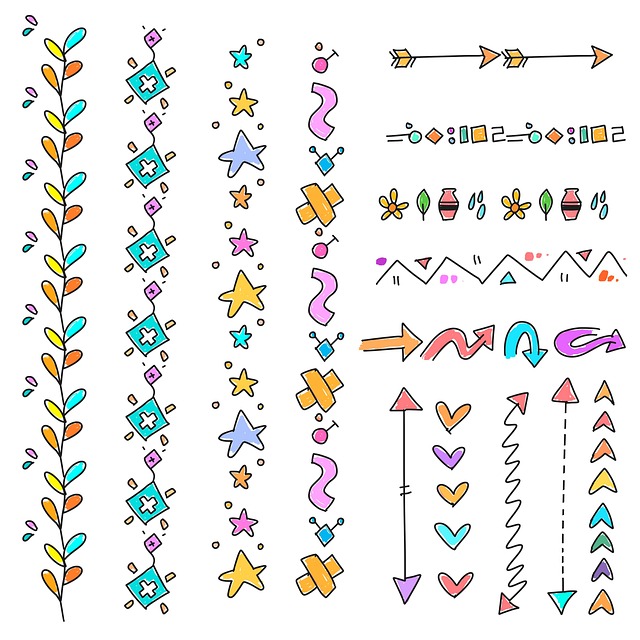Translation services are indispensable for UK scientific journals aiming to reach a global audience, ensuring accurate conveyance of scientific terminology in multiple languages. These services face challenges with complex terminology and cultural nuances, requiring experienced linguists. Best practices involve structured approaches, peer review, and AI-powered tools for efficiency and accuracy. Quality control processes, including subject expert reviews, maintain high standards. Utilizing these services facilitates international collaboration, knowledge exchange, and the global dissemination of scientific knowledge. Cost-efficient options enable small journals to expand their impact, while advanced technologies and sustainable practices drive future innovations in translation services for UK scientific journals.
In the dynamic landscape of scientific communication, translation services play a pivotal role in ensuring global accessibility of UK research. This article delves into the intricacies of translating scientific journals, highlighting challenges faced by editors navigating diverse linguistic and cultural landscapes. We explore best practices, the transformative power of technology, quality control measures, and the profound impact on research dissemination. Additionally, we discuss cost-effective solutions for small academic journals and anticipate future trends in UK scientific translation services, emphasizing the vital role these services play in advancing global scientific knowledge.
- The Role of Translation Services in UK Scientific Publishing
- Challenges in Translating Scientific Journals for a Global Audience
- Understanding the Demands of UK Scientific Journal Editors
- Best Practices for Accurate and Reliable Scientific Translation
- How Technology is Transforming Scientific Journal Translation
- Ensuring Quality Control: Checks and Balances in Translation Processes
- The Impact of Accurate Translation on Research Dissemination
- Exploring Cost-Effective Solutions for Small Academic Journals
- Future Trends in UK Scientific Translation Services
The Role of Translation Services in UK Scientific Publishing

In the competitive landscape of UK scientific publishing, translation services play a pivotal role in ensuring research reaches a global audience. Accurate and culturally sensitive translations are essential for making scientific journals accessible to readers worldwide, fostering collaboration, and advancing knowledge across borders. Translation services for UK Scientific Journals serve as a crucial bridge, enabling researchers from diverse linguistic backgrounds to contribute their findings effectively.
These professional translation services go beyond simple word-for-word equivalency, capturing the nuances of scientific terminology and contextual meaning. They facilitate the publication of groundbreaking research in multiple languages, enhancing the visibility and impact of UK scientific journals on an international scale. By partnering with reputable translation providers, publishers can maintain high standards of quality, accuracy, and confidentiality, thereby upholding the integrity of the scholarly record.
Challenges in Translating Scientific Journals for a Global Audience

Scientific journals play a vital role in sharing knowledge globally, but translating them into different languages presents unique challenges. For UK scientific journals aiming to reach an international audience, these obstacles can be significant. One of the primary hurdles is ensuring precise and contextually appropriate translations. Scientific terminology often includes complex concepts and specialized terms that require careful handling during translation. A simple word-for-word approach may lead to ambiguity or incorrect interpretations.
Additionally, maintaining the original meaning and flow of the text while translating scientific articles is crucial. The structure and style of scientific writing can vary across languages, making it a delicate task to adapt without losing clarity. Translation services for UK Scientific Journals must employ experienced linguists who understand not just the language but also the nuances of scientific communication to overcome these challenges effectively.
Understanding the Demands of UK Scientific Journal Editors

The UK’s scientific journals play a pivotal role in shaping global research discourse, demanding exceptional quality and accuracy in published content. Editors of these prestigious publications face the daunting task of sifting through a deluge of submissions, each vying for space in these highly competitive platforms. To meet this challenge, they must possess a keen eye for detail, ensuring that every aspect—from methodical rigor to clear communication—is impeccable.
In this fast-paced environment, translation services for UK scientific journals become indispensable tools. Accurate and culturally sensitive translation is not merely an option but a necessity, especially given the diverse global research community. Editors rely on these services to ensure that groundbreaking discoveries are accessible and understandable to readers worldwide, fostering inclusivity and collaboration in the scientific arena.
Best Practices for Accurate and Reliable Scientific Translation

When it comes to translation services for UK scientific journals, adhering to best practices is essential for maintaining accuracy and reliability. A crucial step in this process involves thoroughly understanding the source content, including its technical jargon and specific terminology used within the scientific domain. Translators should also be native speakers or have advanced proficiency in the target language to ensure grammatical correctness and natural phrasing.
Additionally, employing a structured approach is vital. This includes breaking down complex texts into manageable segments, translating them piece by piece, and then meticulously compiling the final document. Using specialized translation software can enhance this process, enabling efficient management of terminology consistency and ensuring that all source material is accurately rendered in the target language. Regular peer review and feedback mechanisms also play a significant role in refining translations and upholding high standards across UK scientific journals.
How Technology is Transforming Scientific Journal Translation

In today’s digital era, technology is revolutionizing scientific journal translation services in the UK. Advanced machine translation tools and artificial intelligence are becoming indispensable assets for academic publishers and researchers alike. These innovations are not only enhancing efficiency but also improving accuracy, enabling faster dissemination of scientific knowledge across global communities.
With the proliferation of open-access journals and the increasing demand for multilingual content, translation services for UK scientific journals are evolving rapidly. AI-powered platforms can now handle complex technical terminology, ensuring that scientific findings remain true to their original intent. This transformation is fostering inclusivity, making cutting-edge research accessible to a broader readership worldwide.
Ensuring Quality Control: Checks and Balances in Translation Processes

In the realm of UK scientific translation, ensuring quality control is paramount for maintaining rigorous standards in academic publishing. Journal editors and publishers often employ a multi-layered approach to guarantee the accuracy and fluency of translated articles. This includes thorough peer review processes where subject matter experts scrutinize the content for conceptual fidelity while professional translators check grammatical nuances and stylistic appropriateness.
Translation services for UK scientific journals frequently incorporate additional checks and balances, such as in-house quality assurance teams or external reviewers, to catch any errors or misinterpretations. These measures not only uphold the integrity of scientific research but also facilitate effective communication of complex ideas across languages, ensuring that the translated articles remain accessible and credible to a global readership.
The Impact of Accurate Translation on Research Dissemination

In the realm of scientific research, accurate translation plays a pivotal role in disseminating knowledge globally. When it comes to UK scientific journals, high-quality translation services are instrumental in ensuring that groundbreaking discoveries reach an international audience. The impact of precise translation cannot be overstated; it opens doors to cross-border collaboration, broadens the scope of research impact, and fosters a diverse and inclusive scientific community.
Effective translation goes beyond mere word-for-word substitution. It involves understanding the nuances of both the source and target languages, maintaining technical accuracy, and preserving the original intent and style. Translation services for UK Scientific Journals must be adept at handling complex scientific terminology while adhering to tight deadlines. This ensures that researchers worldwide can access and build upon the insights shared in these journals, ultimately accelerating scientific progress.
Exploring Cost-Effective Solutions for Small Academic Journals

In the realm of academic publishing, small journals often face significant challenges, particularly when it comes to funding and resource allocation. One area where they can streamline costs is through efficient use of translation services for UK scientific journals. With the global nature of scientific research, ensuring accessibility and reaching a diverse audience becomes paramount. Translation plays a pivotal role in this regard, enabling articles to transcend language barriers.
Cost-effective solutions are available, including leveraging professional translation agencies specializing in academic content or utilizing online platforms that offer competitive rates for scientific translations. These options not only provide financial relief but also maintain the integrity and precision of scientific writing. By exploring these avenues, small journals can enhance their reach, attract a broader readership, and contribute to the global exchange of knowledge without compromising on quality.
Future Trends in UK Scientific Translation Services

The future of UK scientific translation services looks set to be shaped by several emerging trends. One notable development is the increasing demand for specialized translation services tailored to the unique requirements of scientific journals. With the rise of open-access publishing and international collaboration, ensuring precise and contextually appropriate translations has become paramount. Translation service providers are responding by investing in advanced technologies like machine translation (MT) and neural machine translation (NMT), which promise faster turnaround times while maintaining high accuracy standards.
Additionally, there’s a growing emphasis on post-editing and human review to refine machine-translated content, ensuring it meets the rigorous standards of scientific literature. Sustainability is another emerging trend, with translators adopting eco-friendly practices, such as using digital platforms to reduce paper waste. As AI continues to evolve, we can expect further innovations in translation memory (TM) management, enabling more consistent and efficient translations across various scientific domains.
UK scientific journals play a pivotal role in global research dissemination, and high-quality translation services are essential to reaching a diverse audience. By implementing best practices, leveraging technology, and prioritizing quality control, editors can ensure that their publications maintain accuracy and integrity. Cost-effective solutions tailored for small academic journals further enhance accessibility, fostering international collaboration and knowledge sharing within the scientific community. Future trends in UK scientific translation promise even greater efficiency and precision, solidifying the country’s position as a leader in global research communication.
